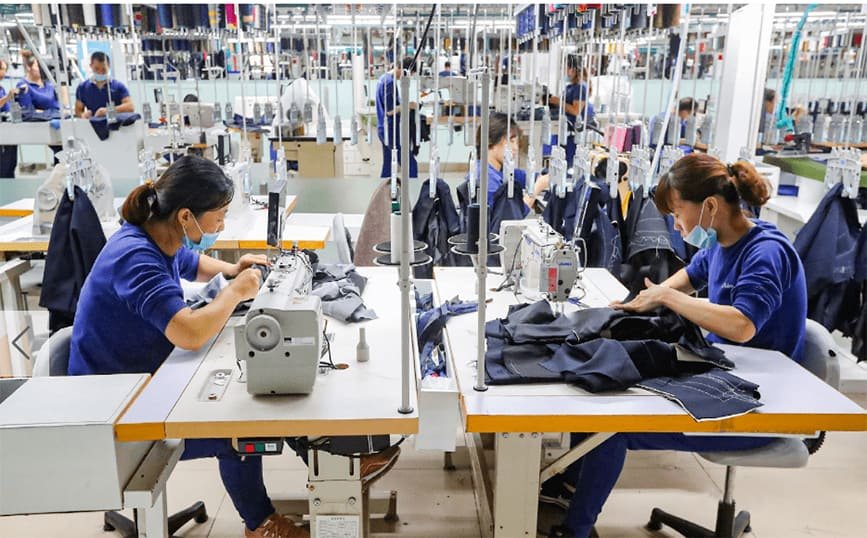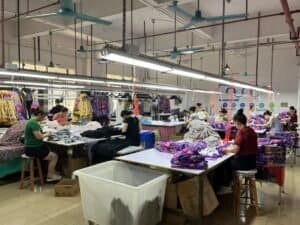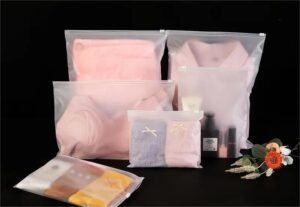In the intricate tapestry of the clothing industry, varying scales of operation coexist, each with its distinct character and quality. As Julie, the founder of Natural Touch Clothing, a sizeable factory in China, my journey through the realm of clothing manufacturing has been enlightening and challenging. The prevailing assumption in our industry is that larger factories, like mine, inherently produce superior quality clothing due to their scale. But is this really a universal truth? Let’s dissect this notion and uncover the realities of size versus quality in clothing manufacturing.
The correlation between a factory’s size and the quality of its clothing is a widely accepted belief. With extensive production lines, such factories typically serve diverse global markets, including the USA, Europe, and Australia. The logic is straightforward: more resources, advanced technology, and skilled labor should logically lead to better quality. Yet, this perspective is somewhat simplistic and overlooks several critical factors that influence the quality of output.
However, the relationship between size and quality is not linear nor guaranteed. While larger factories have certain strengths, they also face unique challenges. In this comprehensive exploration, we will delve into the various elements that contribute to the quality of clothing, particularly in large-scale manufacturing settings.

What Factors Determine the Quality of Clothing in Large Factories?
1. Production Capacity: How Does Scale Impact Efficiency and Quality?
Large-scale operations typically boast higher production capacities, allowing for the mass production of clothing. This scale can lead to more efficient processes and potentially lower costs per unit. However, efficiency doesn’t always equate to quality. In large factories, maintaining consistent quality across thousands of pieces can be challenging. The risk of quality issues can increase with volume, necessitating robust quality control systems to ensure every item meets the set standards.
2. Technology and Innovation: Are Bigger Factories More Advanced?
Generally, larger factories have the capital to invest in the latest manufacturing technology and innovation. This investment can lead to improvements in the precision and consistency of clothing production. Advanced machinery can handle intricate designs and consistent stitching, which are hallmarks of high-quality garments. However, the mere presence of cutting-edge technology does not guarantee superior quality. It requires skilled operators and continuous updates to stay ahead.
3. Skilled Workforce: Does Size Attract Better Talent?
The workforce is the backbone of any manufacturing operation. Larger factories often have the resources to attract and retain skilled workers. These workers bring expertise and craftsmanship, which are crucial for high-quality production. However, managing a large workforce also presents challenges in maintaining standards and ensuring every team member upholds the factory’s quality ethos.
4. Quality Control: Is It Easier to Maintain in Larger Settings?
Quality control in large factories involves comprehensive systems and protocols. While the scale provides resources for detailed quality control processes, the sheer volume of production can make it challenging to maintain consistency. It requires continuous monitoring and a culture of quality throughout the organization to ensure that every product meets the desired standards.
5. Customization Capabilities: Can Bigger Factories Offer More?
In my experience, large factories often have the versatility to offer extensive customization options. This capability is due to varied production lines, skilled designers, and the ability to source a wide range of materials. Customization is a key aspect of quality in today’s market, where clients seek unique products tailored to their needs.
6. Supply Chain Management: How Does Size Affect Sourcing and Distribution?
Effective supply chain management is crucial for maintaining quality. Large factories usually have well-established supply chains, ensuring timely and quality material sourcing. However, larger operations also mean more complex logistics, requiring efficient coordination to ensure that the final product meets quality expectations.
How Do Small and Medium-Sized Factories Compare?
Comparing large factories with smaller counterparts reveals a different set of strengths and challenges. Smaller factories often excel in areas where larger ones may struggle.
1. Personalized Service: The Edge of Smaller Factories
Smaller factories typically offer more personalized service. They can be more flexible in meeting specific client needs, which can translate into higher quality for custom orders.
2. Flexibility and Adaptability: Can Smaller Factories Pivot Faster?
With fewer layers of bureaucracy, smaller factories can quickly adapt to changing market trends or client requests. This agility can be a significant advantage in maintaining quality standards in a dynamic market.
3. Niche Specialization: Quality in Focus
Many smaller factories specialize in specific types of clothing, which can lead to superior quality within their niche due to focused expertise and dedication to a particular craft.
The Role of External Factors
The quality of clothing manufacturing is not determined by factory size alone. External factors play a significant role.

1. Global Market Trends: Adapting to Consumer Demands
Factories, regardless of size, must adapt to evolving market trends and consumer preferences. This adaptability can impact quality, as manufacturers strive to meet changing standards and expectations.
2. Environmental Policies and Sustainable Practices
Today’s consumers and businesses are increasingly aware of environmental impact. Factories that implement sustainable practices and adhere to environmental policies often produce higher quality clothing, as these practices can be indicative of a broader commitment to excellence and social responsibility. Larger factories may have more resources to invest in sustainable technologies, but smaller factories can be more nimble in implementing eco-friendly practices.
3. Consumer Expectations: How They Shape Quality Standards
Consumer expectations significantly influence the quality standards of clothing manufacturing. In an era where customers are more informed and discerning, meeting their expectations in terms of quality, sustainability, and ethical production is crucial. This challenge is universal, impacting factories of all sizes.
A Personal Reflection on Our Journey at Natural Touch Clothing
At Natural Touch Clothing, we’ve experienced firsthand the challenges and rewards of operating a large-scale clothing factory. Balancing growth with quality maintenance has been a continuous journey. We have invested heavily in technology and skilled labor to ensure our products meet the high standards our international clients expect. However, it has not been without challenges. Scaling up production required stringent quality control measures and constant innovation to stay relevant in the competitive global market. Our commitment to quality has been unwavering, and it is this dedication that has helped us build long-lasting relationships with our clients.
Conclusion
The notion that larger factories inherently produce better quality clothing is a simplification of a much more complex reality. Quality in clothing manufacturing is influenced by a myriad of factors, including but not limited to the size of the operation. Both large and small factories have their unique advantages and challenges. In my experience, the key to high-quality production lies in a commitment to excellence, continuous improvement, and a deep understanding of the market and client needs. Whether a factory is large or small, these principles are the cornerstone of producing high-quality clothing.





